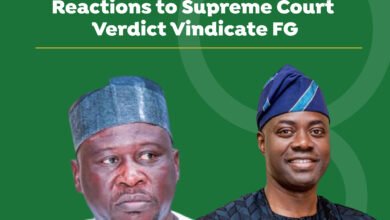
In recent times, Nigeria has witnessed a surge in hate speech and divisive threats, both within the country and among its diaspora community.
The latest incident involves Amaka Sonnberger, a Canada-based Nigerian woman who has been arrested by the Toronto Police Service for threatening to poison Yoruba and Benin people living in Canada.
Sonnberger’s threats were made in a video that surfaced on social media, where she vowed to take poisonous substances to her workplace and poison any Yoruba or Benin person she came across.
Such divisive rhetoric can have serious consequences, including inciting violence and fostering social division.
“We urge anyone with information on this case to come forward and assist us in our investigation,” said a spokesperson for the Toronto Police Service.
This incident is not an isolated case.
In Nigeria, there have been numerous reports of hate speech and divisive threats, often along ethnic and religious lines.
Dangers of Bigotry
Bigotry, defined as intolerance or prejudice toward individuals or groups based on their religion, ethnicity, nationality, or other characteristics, is a corrosive force that undermines social cohesion and perpetuates violence.
Hate speech, a common manifestation of bigotry, can incite hatred and discrimination, leading to real-world consequences such as harassment, intimidation, and even physical harm.
In Nigeria, bigotry has been a persistent challenge, fueled by various factors including religious and ethnic tensions, political polarization, and economic inequality.
The consequences of bigotry are far-reaching, affecting individuals, communities, and the nation as a whole.
Legal Framework and Enforcement
To combat bigotry effectively, Nigeria has a legal framework in place that criminalizes hate speech and incitement to violence.
The Cybercrimes Act, the Penal Code, and the National Broadcasting Commission Code all contain provisions that address these offenses.
However, the enforcement of these laws has been inconsistent, and there is a need for greater awareness and stricter penalties to deter individuals from engaging in hateful behavior.
Additionally, the proposed Prohibition of Hate Speech Bill, if passed into law, could provide a more comprehensive framework for addressing this issue.
Beyond Legislation
While legal measures are essential, experts believe addressing bigotry requires a multi-faceted approach.
They suggest investments in education and awareness campaigns can help to promote tolerance, understanding, and respect among different groups in society.
Experts also contend that media outlets should be encouraged to avoid perpetuating stereotypes and harmful narratives.
“Though they say bad news sells more, we as journalists need to be careful of the kind of agenda we push to the public so we don’t set our country on fire for clicks or any other selfish gains, ” Mojeed Bakare, a Lagos-based News Editor advised.
Beyond all these, it is also crucial for community leaders, religious figures, and government officials to speak out against bigotry and promote peaceful coexistence.
By fostering a culture of inclusivity and respect, we can create a more harmonious
Wake-up Call
The arrest of Amaka Sonnberger serves as a wake-up call for all Nigerians. We must stand united against bigotry and work towards a society where everyone feels safe, respected, and valued, regardless of their background.
Let us commit to promoting tolerance, understanding, and respect. Let us reject hatred and discrimination in all its forms.
Together, we can build a Nigeria that is free from bigotry and united in its diversity.





